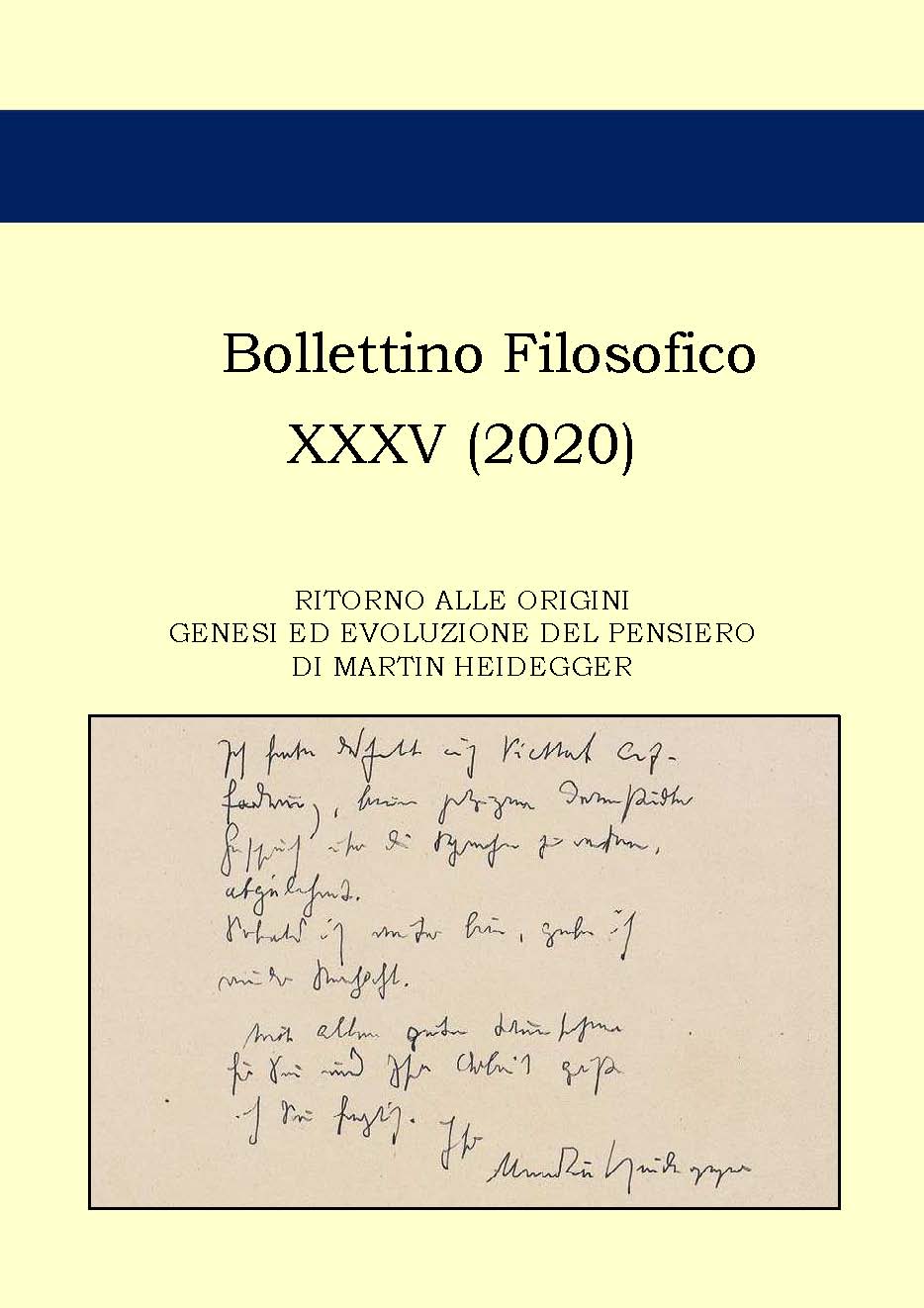Two-Dimensional Everyday-Life and Care Analysis by Heidegger in the 1920es
Abstract
Both the early hermeneutics of facticity and the mature question of being have their starting point in the investigation of everyday life. Underlining Being and Time, we discuss two dimensions of the everyday life phenomenon, namely its «content» and «modal» sense. The relationship between both of them shows up as a dynamic tendency and an internal reference. On the basis of the distinction of the two-dimensional everyday life we deal with the problem of modal indifference, which is apparently closely connected with the «content» sense of everyday life, in order to find out whether it could be a third way to execute existence besides authenticity and inauthenticity. We reject the plain correspondence between everyday life with modal indifference and inauthenticity, taking into account the thesis in Being and Time about the possibility of authentic liberating solicitude in the facticity of being together, whose analysis remains within the limits of everyday life.
Keywords: Authenticity, Everyday Life, Modal Indifference, Ontology, Solicitude
Downloads
The author retains the copyright of his work whilst granting anyone the possibility “to reproduce, distribute, publicly communicate, publicly exhibit, display, perform and recite the work”, provided that the author and the title of the journal are cited correctly. When submitting the text for publication the author is furthermore required to declare that the contents and the structure of the work are original and that it does not by any means compromise the rights of third parties nor the obligations connected to the safeguard of the moral and economic rights of other authors or other right holders, both for texts, images, photographs, tables, as well as for other parts which compose the contribution. The author furthermore declares that he/she is conscious of the sanctions prescribed by the penal code and by the Italian Criminal and Special Laws for false documents and the use false documents, and that therefore Bollettino Filosofico is not liable to responsibilities of any nature, civil, administrative or penal, and that the author agrees to indemnify and hold Bollettino Filosofico harmless from all requests and claims by third parties.
